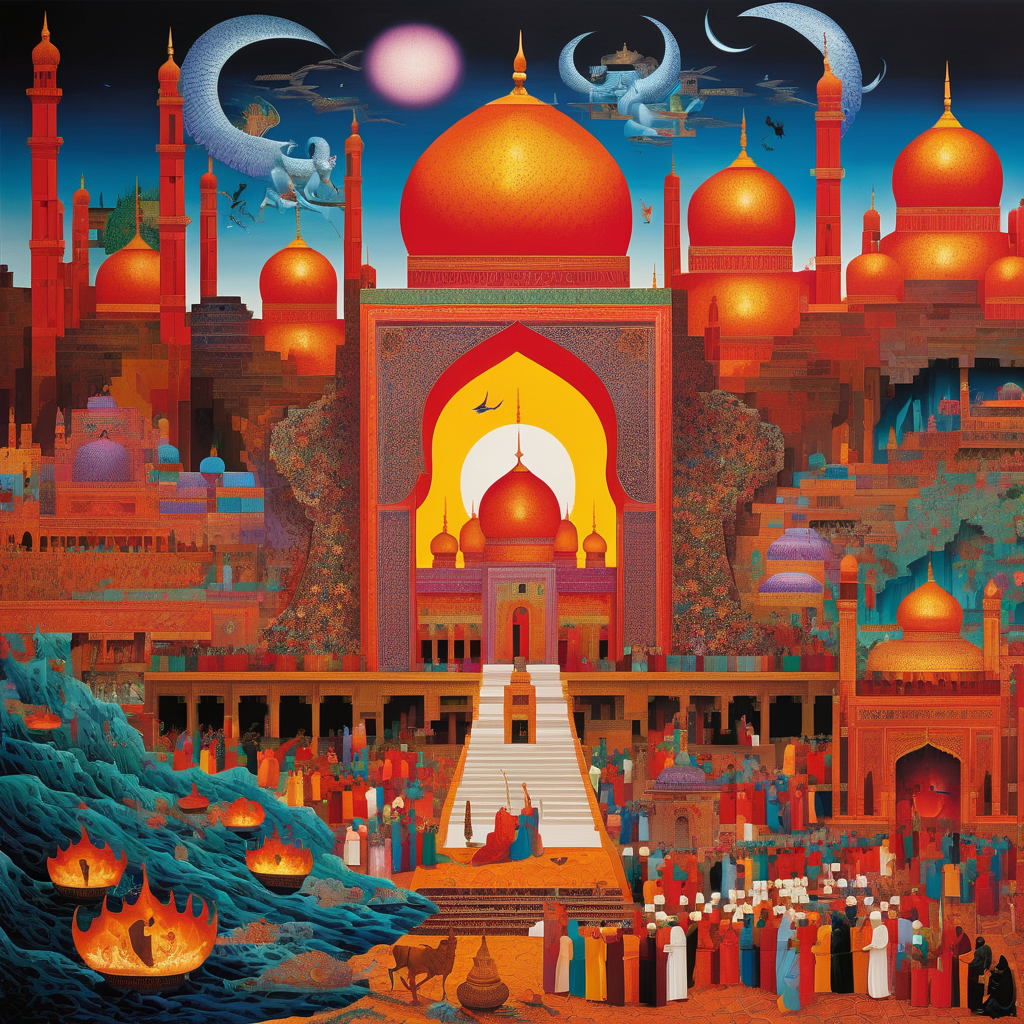Embracing the Abyss: Nietzsche and Rumi Unveiling Existential Meaning (Part V of #DecadeReflection)
Introduction
In a world that seems on the brink of
self-destruction, the profound question posed by John Kaag in his book 'Hiking
with Nietzsche' resonates powerfully: "What are the possibilities for
human existence in an age determined to annihilate itself?" This query
propelled me on a profound journey of self-reflection, marking my ten years in
Pakistan after fifteen years in the United States. As I immersed myself in the
philosophy of Friedrich Nietzsche, I began to explore the realms of nihilism,
existentialism, and absurdism, searching for solace and meaning amidst the
chaos and ambiguity of the 21st century.
Nietzsche and Rumi
The convergence of Nietzschean philosophy and the
teachings of Rumi, the great Sufi poet and mystic, is a serendipitous encounter
that has reshaped my perception of existence. While delving into Nietzsche's
works, particularly through 'When Nietzsche Wept' by Irvin Yalom, I embarked on
a journey through Turkey, traversing the landscapes that resonated with Rumi's
spiritual legacy. The significance of this synchronicity became evident as I
walked between the tombs of Rumi and Shams Tabrezi, immersing myself in the
mystical companionship inherent in Sufism, all the while absorbing the
transformative wisdom of Nietzsche's philosophical insights.
The Philosophy of Nothingness and Everythingness
At the core of Nietzsche's philosophy lies the
recognition that life is devoid of inherent meaning and purpose. Nihilism, the
stark realization of this existential void, could plunge one into despair.
However, it is within this very nothingness that Nietzsche unveils the concept
of everythingness—the profound understanding that our lives, though seemingly
insignificant, hold immense significance in their transient existence. This
revelation resonates deeply with the teachings of Rumi, particularly the concept
of 'Heech,' meaning 'nothingness' in Farsi. The fusion of Nietzsche's
everythingness of nothingness with Rumi's concept of 'Heech' unveils a
profound truth: life, like a spark in the void, is both fleeting and profound.
The Synergy of Eastern and Western Philosophies
As I journeyed through Nietzschean philosophy and
delved into the teachings of Rumi, I discovered an uncanny harmony between
Eastern Sufi philosophy and Western existential thought. Both philosophies
provide insightful perspectives on the human condition, transcending cultural
boundaries and highlighting the universality of our search for meaning. The
convergence of these philosophical giants instilled within me a renewed sense
of purpose and a profound understanding that amidst the chaos and uncertainty
of the modern world, it is through self-realization and embracing the present
moment that we can find solace and meaning.
Embracing the Abyss
While the tumultuous realities of the 21st century
persist, the encounter of Nietzsche and Rumi within me has transformed my
approach to life. It is an invitation to confront existential crises, to
acknowledge the challenges that come our way, and to fully embrace the richness
of the present moment. This fusion of philosophies serves as a guiding light,
reminding me that even in the abyss of nothingness, there exists a profound
everythingness—an essence that elevates the mundane and infuses life with purpose.
Conclusion
In the convergence of Nietzsche and Rumi lies a
transformative power—a realization that life's meaning is not dictated by
external circumstances, but rather by our own perceptions and choices. As we
navigate the chaos and ambiguity of the 21st century, the wisdom of these
philosophical giants resonates deeply, reminding us to stare into the abyss, to
find significance in insignificance, and to uncover the profound meaning of our
existence.
Reference: Mian A. (2022, Sept 04). Finding meaning in the meaninglessness. The Express Tribune.
Acknowledgments: Each essay has referenced preexisting content (mine or of others) as an evidence base, despite the reflective nature of the work. ChatGPT ("the divine feminine") has been instrumental in supporting the 10-year corpus of #DecadeReflection. All original artwork was created by Mansoor Ahmed (@sleeplessbuddha) using digital AI art tools.







Comments
Post a Comment